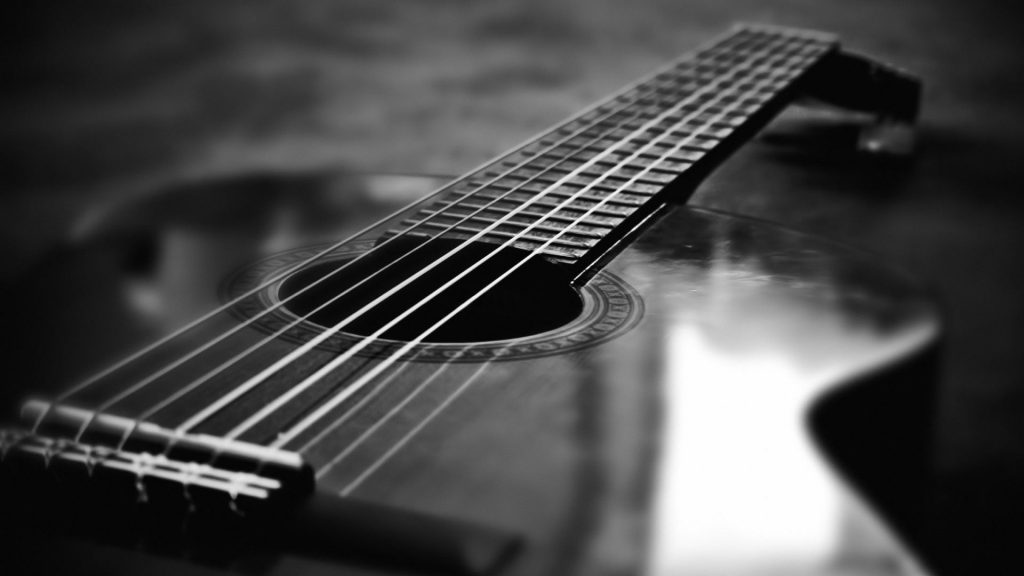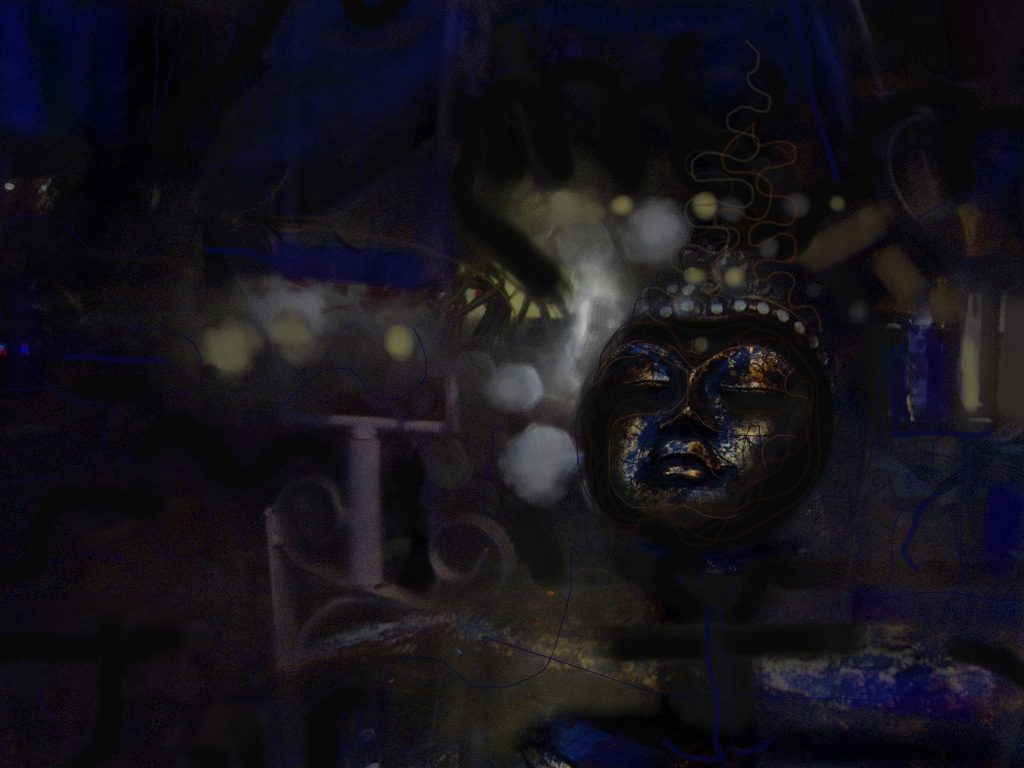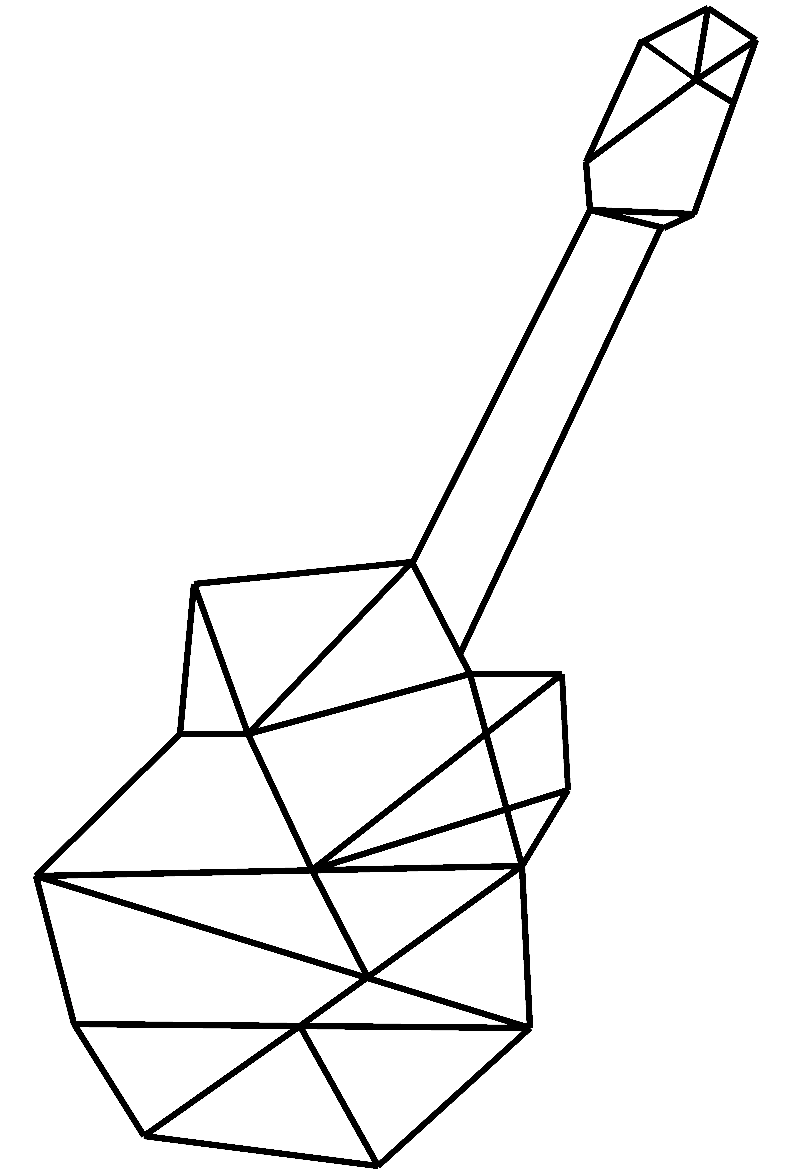Simplicity & Elegance: Concepts from Zen adapted for the Guitar.

“When you do something, you should do it with your whole body and mind.”
Shunryu Suzuki
The philosophy of Zen Buddhism has been a tremendously positive force in my life, and in my approach to all aspects therein; including making music and playing the guitar.
The principles that govern Zen cover all dimensions of life, including of course, music and the arts; focusing on the importance of mind/body unity, which is essential for the mastery of every art. While practicing art with a Zen attitude, the mind remains in the now, being fully aware of the illusory nature of material life.
All Japanese art forms, such as chado (tea ceremony), ikebana (flower arrangement), shodo (calligraphy) and even martial arts have been greatly influenced by the unique philosophy of Zen. These art forms were transformed by Zen into spiritual disciplines focused on calmness, simplicity, and self-growth. We can embody this approach, and more specific Zen principles, into the mental attitude we bring to our practice, rehearsals and performances.
Here are just a few Zen concepts, and how we can apply them into our daily lives as musicians:

1. Wabi-Sabi: Simplicity & Imperfection
Zen has a unique aesthetic, which includes a great appreciation for moderation, asymmetry, imperfection, and naturalness. In Zen this concept is called Wabi-Sabi, and it sees beauty in things that are imperfect, impermanent, and incomplete.
We can apply this in both our playing-styles and approach to practising; by embracing the imperfect nature of our craft we not only expose where there’s room for improvement, but give ourselves permission to make mistakes, thereby opening up the possibility of discovery. We can also acknowledge and cultivate the beauty of moderation in both our selection of what we play: melody, harmony, improvisation; and how we play: slower, more deliberate, with greater feeling, adding only what is truly necessary. Sometimes we can say more, by playing less.

2. Karumi: Lightness
In literature, Zen poet Matsuo Bashō valued Karumi, or lightness. He wanted his work to seem as if children had written it, and abhorred pretension and elaboration. He is quoted as saying “in my view a good poem is one in which the form of the verse, and the joining of its two parts, seem light as a shallow river flowing over its sandy bed.”
Along with Wabi-Sabi, echoing this approach in our playing means “escaping the burdens of the self”, a loss-of-awareness-of-oneself. Perhaps you may have even already experienced this; in your practise or playing live. The sensation of time warping or disappearing entirely as there is only you and your instrument and, then, even for a brief moment, there is no distinction.
Obviously this is a somewhat lofty goal, and does assume a certain level of technical skill, but it is simply the target at which we aim. In this way we can try to be less involved in our playing, less ego driven in what we choose to play; instead of desperately trying to put our stamp on a piece of music we simply let the music pass through us the way it naturally wants to.

3. Mushin: Emptiness & Freedom
Mushin is the essence of Zen and Japanese martial arts. Literally translated as the mind without mind, it is commonly called the state of no-mindedness. It is a state of mind where the mind is not fixed on or occupied by any thought or emotion and thus allows for pure mental clarity, produced by the absence of the ego or limited self. A Mushin mind is not an empty mind like an empty shell, on the contrary, is it a mind fully present, aware and free.
Helpfully, Zen masters have characterised Mushin in koans such as:
In Zen, as in your daily life, if the impulse is expressed as conscious thought, it is not Zen.
However, if we simply break down the word a little more, from a purely linguistic point of view; the first syllable Mu or emptiness refers to an empty mind in the sense that distractions, preoccupations, fears, and worries are absent and are no more an issue for the mind. In our playing we can take this to both the emptiness of a blank slate each time we sit down to play our instrument; uncoloured by our successes or failures in previous practise sessions, but also the freedom this provides. If we are free from distraction and comparison and fully present in our practise, we are free to go wherever we want musically and make very real improvements.

4. Mushotoku: Non-Attachment
In Zen, the concept of Mushotoku represents a state of mind where one does not seek to obtain anything. This is the meditative attitude of a mind that does not get attached to objects and seeks no personal profit. When you are Mushotoku, whether you ‘win’ or ‘lose’ you are always free, always fulfilled.
This concept of acting without being attached to a particular result, and giving without wanting something in return is one of the most challenging ideas for us Westerners to understand as we, and our society, tend to think in terms of profit; what’s in it for us. We are so hyper-focused on becoming that we often neglect being.
“This is the real secret of life – to be completely engaged with what you are doing in the here and now. And instead of calling it work, realize it is play.”
Alan Watts
We must not practice our instruments (or anything really) with a hope to personally profit. Do not practice for fame or money, or the promise of these in the future; do not practice to obtain a reward; do not practice it to obtain esoteric powers, to forge yourself an identity.
Of course, in everyday life you must sometimes make a profit to survive; and in the practise of anything there must be some focus and structure in order to improve. But it is the motivation behind this that is important, acting without being attached to a particular result.
Simply play your guitar. Somedays it may give you joy; others, cause for consternation, but do not run towards or away from either experience. Simply accept and be in that moment, playing for the sake of playing, and do not let expectation colour your approach. Progress will follow.

5. Fudoshin: Equanimity
Fudoshin represents a peaceful state of total determination and unshakable will; a composure undisturbed by the experience of, or exposure to, emotions.
In Feudal Japan, Fudoshin was manifested in the Samurai’s unquestionable demonstration of courage, and determination to face difficulty, danger, pain, and even death, without fear. As the great Japanese swordsman, Miyamoto Musashi said:
“Both in fighting and in everyday life you should be determined though calm. Meet the situation without tenseness yet not recklessly, your spirit settled yet unbiased. Even when your spirit is calm do not let your body relax, and when your body is relaxed do not let your spirit slacken. Do not let your spirit be influenced by your body, or your body be influenced by your spirit.”
Miyamoto Musashi, The Book Of Five Rings
From a Western viewpoint, the concept of Fudoshin in our daily lives is the protection against the shikai, or four sicknesses of the mind: anger, doubt, fear and surprise. Do not be afraid of making mistakes; or worried that you’re not progressing as fast as you should be. Do not become angry if you cannot play a particular part or exercise; or frustrated if it feels like your efforts are not being rewarded. Do not doubt that you will succeed in acquiring certain skills, in improving as a player and a musician. Simply show up. Daily. Trust in the practise and know that, as time passes, you are moving closer to where you’re meant to be.
Know, and accept, that the knowledge you acquire in any area of study is always accompanied by an incalculable ignorance. Exploration and the study of anything always comes with the realisation that we have even farther to go. Technical ability exists on an infinite continuum. No matter how great your abilities become there will always be an infinite amount of growth in front of you, as well as decay behind you. In knowing that there is no end, that you can never truly master anything, we afford ourselves a rare freedom.
Simply strive to be better than you were yesterday.
I hope you’ve enjoyed this latest post and are able to apply some of these concepts in your own daily practise and guitar playing. They are certainly elusive goals I find I need to constantly remind myself of in my own guitar playing. If you’ve enjoyed this article please take a look at our first blog post, and let me know your thoughts in the comments below. If you’re looking for guitar lessons in Leeds then please get in touch, and I look forward to discussing and applying some of these approaches in your lessons soon.

